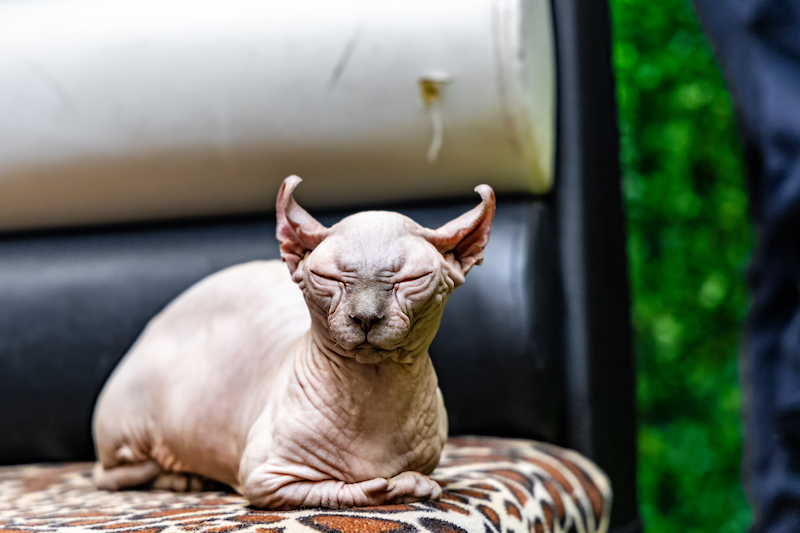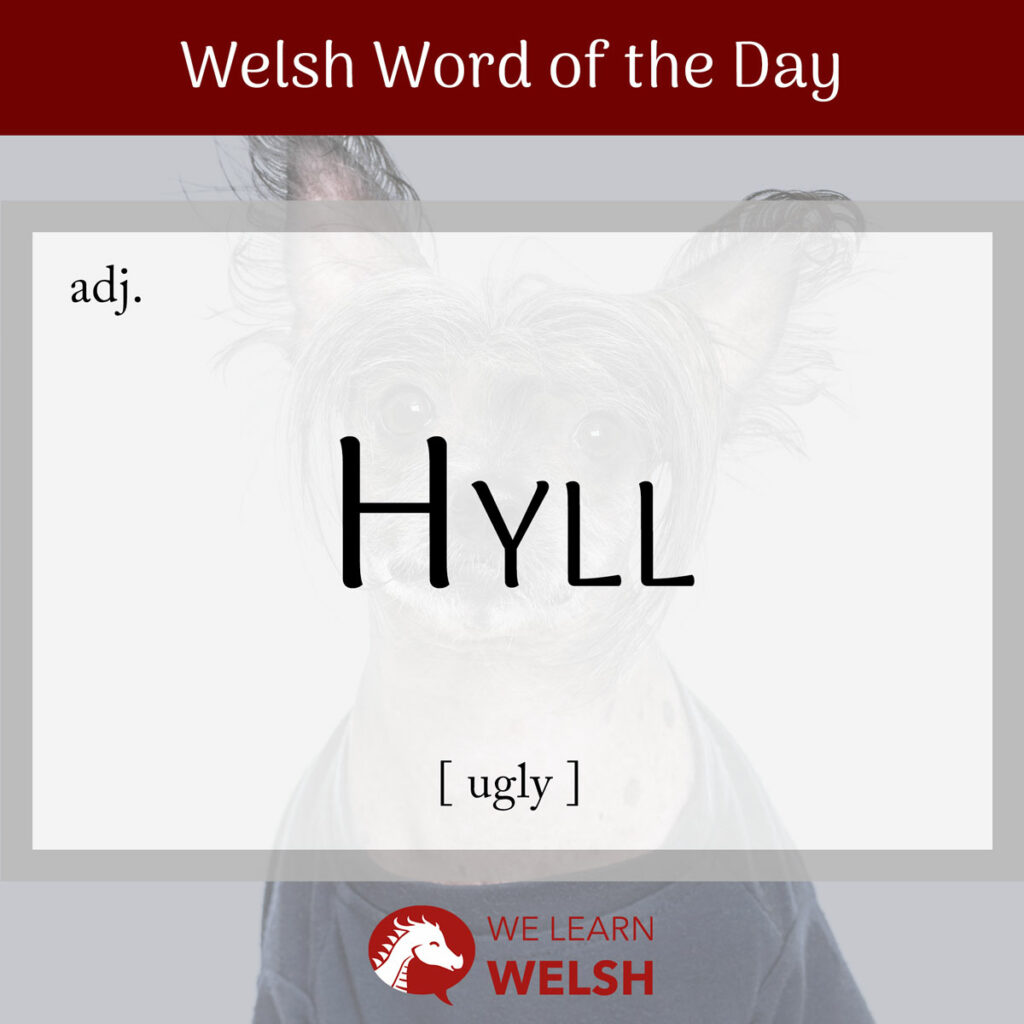The harsh, hissing sound of the Welsh word hyll has always struck me as a great representation of what it actually means: ugly.
hyll
ugly
You can use hyll to describe masculine, feminine and plural nouns. Although hell is technically the feminine form, it’s not common at all. Hyllion is a bit more familiar, but tends to be limited to formal contexts.
There are also comparative forms of the word. Hyllach is uglier and hyllaf is ugliest. You can also use the phrase cyn hylled â to mean as ugly as. This is good for insults – not that I’m endorsing it!
- cyn hylled â baw = ugly as dirt
- cyn hylled ag ellyll = ugly as a troll
- cyn hylled â chocrotsien = ugly as a cockroach
- cyn hylled â phechod = ugly as sin
- cyn hylled â’r diawl = ugly as the devil
- cyn hylled â llyffant = ugly as a toad
In all these phrases you can substitute cyn hylled with mor hyll. Which is preferred will change depending on who you speak to, so you can use whichever you personally like best.
Roedd y wrach yr un mor hyll â‘i chwaer.
The witch was just as ugly as her sister.
The connotations of words vary throughout the country in a language as regionally diverse as Welsh, but in general, hyll creates an even stronger feeling than its English translation. It’s perhaps better translated as hideous or repulsive to show its intensity. But people do use it in contexts where you’d use ugly in English, and this is what most dictionaries will give as its definition.
The usually reliable Geiriadur Prifysgol Cymru (Welsh University Dictionary) doesn’t provide any information on the etymology of this world, so we’ll have to be left guessing.
Conversely, the synonyms salw and hagr are much easier to trace. Old-fashioned hagr comes from the proto-Celtic *sakros, which has also produced the very similar word hager in Cornish. Salw, which is common in the South and can mean ugly or sickly, is probably a borrowing from English and related to sallow.
So it’s a real mystery as to how hyll became the most standard form compared to its seemingly more sensible siblings – let us know in the comments if you have any leads!
But since we’re talking synonyms, let’s explore some more of the alternatives.
- plaen = plain
- diolwg = not good-looking
- annengar = unattractive
- anhardd = unpretty
- gwrthun = ugly / hideous
- erchyll = very hideous / horrible
Though it’s generally considered polite to use words like hardd (beautiful), pert (pretty) and golygus (good-looking) instead!
Mae hi’n meddwl ei bod hi’n hyll, ond dwi’n meddwl ei bod hi’n dlos iawn.
She thinks she’s ugly, but I think she’s very pretty.

We do use ugly a lot in English to talk about things that are very drwg (bad) or ofnadwy (horrible) even if the problem isn’t physical. This isn’t impossible in Welsh – you could say, for example, mae pethau’n edrych yn hyll (things are looking ugly).
But it’s definitely less common and not appropriate in all expressions. Instead of giving someone an ugly look, in Welsh, you’ll edrych yn ddu (look blackly). And things don’t turn ugly, they troi’n gas (turn nasty). As you can tell, these aren’t idiomatic meanings specific to Welsh – they would work just as well in English, too.
Harddwch (beauty) and hyllter or hagrwch (ugliness) are shaped by both culture and historical context. Many traits once seen as annengar (undesirable) are now considered highly dymunol (desirable), and vice versa.
They’re also influenced by socioeconomic factors. Historically, being tew (fat or chubby) was considered dengar (attractive) because it indicated wealth, whereas now that most people in wealthy countries can afford to eat as much as they want, being main (slim) is often idolised.
There’s a well-known story about American companies that originally sold raseli (rasors) to men. In an effort to increase profits, they began targeting women too — and in doing so, helped promote the idea that blew (body hair) on women was annengar (undesirable).
Luckily, safonau harddwch (beauty standards) change fast. This gives pobl (people) – particularly menywod (women) and merched (girls), who are generally under the biggest pressure to avoid hyllter – more rhyddid (freedom) to celebrate rather than demonise unique physical features.
So there’s clearly a lot of moesoldeb (morality) tied up in the concept of hyllter. Though as we all know well from the story of the hwyaden fach hyll (ugly duckling), things can change easily, and harddwch isn’t everything.

